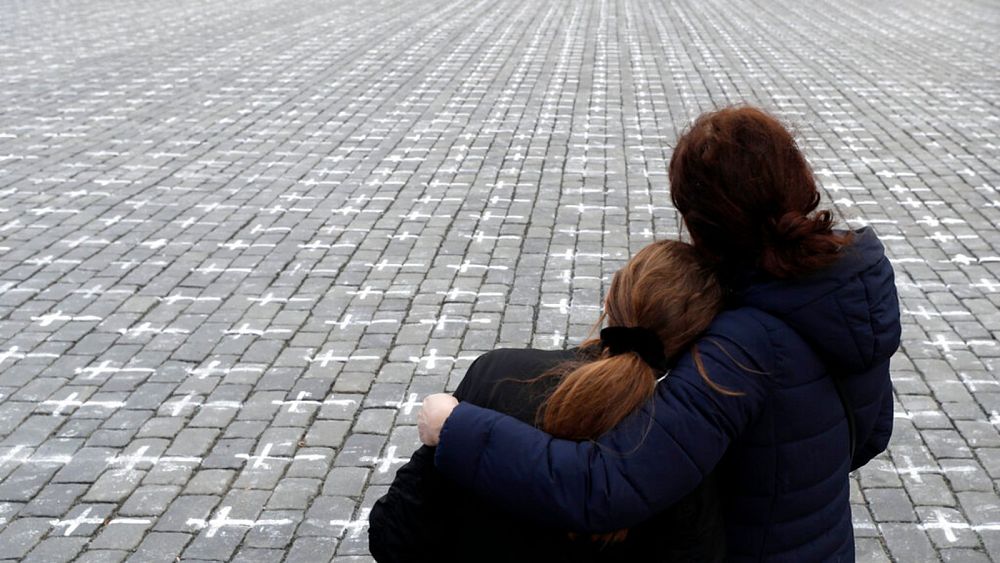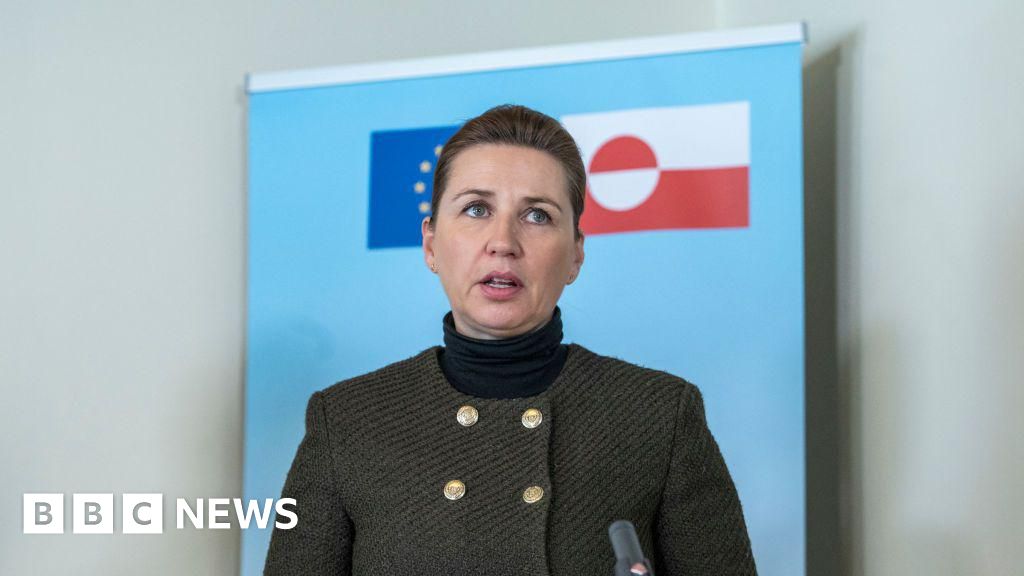Protesters painted more than 20,000 white crosses on cobblestones in Prague to highlight their anger with the country”s COVID-19 response.
The stunt in the city’s Old Town Square marked a year since the Czech Republic’s first death from the disease.
The country’s death toll has since climbed to more than 24,000.
“Dissatisfaction is growing in society,” said the group behind the crosses, Million Moments for Democracy, in an open letter to the government.
“To date, 24,810 people have died. They were our loved ones, friends, parents and grandparents, colleagues from work.
“All unnecessarily wasted lives oblige us to finally make a difference in the elections. Otherwise, it will be worse. 199 days left.”
Last week the Czech government said it was extending the country’s tight lockdown till after Easter, as infection and death rates remain at high levels.
“We’re not in a situation to afford any major changes,” health minister Jan Blatny announced. “I’m terribly sorry about that.”
Among the restrictions that became effective on March 1 in one of the hardest-hit countries in the European Union, people have been banned from travelling to other counties unless they go to work or have to take care of relatives.
It is part of a series of measures as the Central European nation has been seeking to slow down the spread of a highly contagious virus variant first found in Britain.
“Only thanks to (the measures), we’re able to keep the health system functional,” Blatny said. ”It’s obvious that those restrictions make sense and that’s why we have to continue with them.”
The measures had been due to expire Sunday but will now last until at least April 5, which is Easter Monday and a national holiday.
Blatny said he expected the situation in hospitals to start to improve and the number of hospitalised to drop to some 5,000 in April.
In a rare sign of relaxing, Blatny said people who go out for exercise are now allowed to leave their municipality but have to stay inside their county.
The government has also started to require mandatory mass testing of employees in private companies and state institutions.
Industry and Trade Minister Karel Havlicek said 300,000 to 400,000 employees have been tested on a daily basis as part of the program, which will be expanded to include state offices with fewer than 50 workers.









